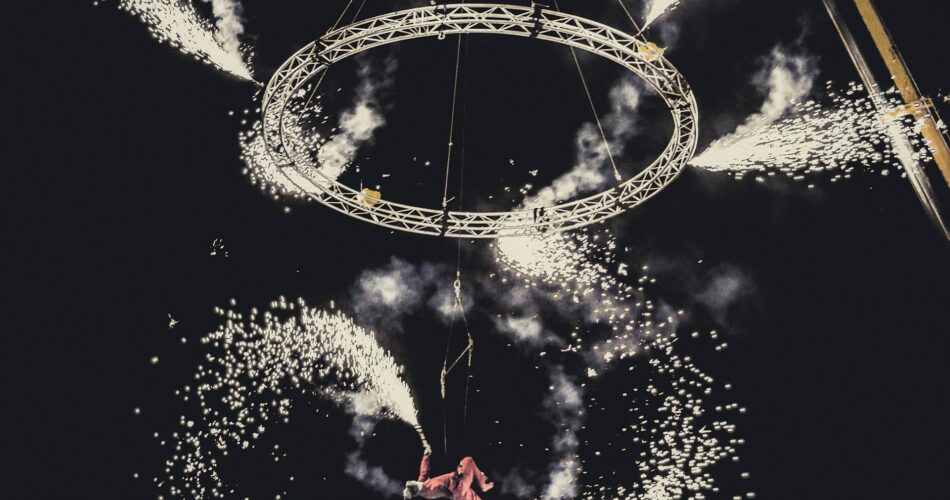The entertainer tried to prove the pastor wrong.
Alex Magala, renowned for his breathtaking aerial sword-swallowing displays and acrobatic prowess, has addressed Pastor Mark Driscoll’s recent critique of his performance at the Stronger Men’s Conference held at James River Church in Missouri. Magala, who openly shared his past experiences, including stripping for both gay men and women in his youth, emphasizes his Christian faith and dismisses Driscoll’s criticism as “uninformed.”
In a statement shared on his Instagram page, Magala clarifies the distinction between his artful stunt performance and a male strip tease, highlighting the artistic and athletic dimensions of his act. He asserts that such performances, far from being inappropriate, serve to inspire and challenge audiences to reach new heights in their lives. For Magala, his act is not merely entertainment but a celebration of human physical achievement, aligned with the spiritual purpose of the conference.
The debate surrounding Magala’s performance, ignited by a viral video clip juxtaposed with Driscoll’s remarks, has stirred discussion on social media and in various publications. Driscoll’s interpretation of the Jezebel spirit, which he insists is not synonymous with derogatory terms like ‘tramp,’ but rather a demonic force seeking control and dominance, adds complexity to the dialogue.
Driscoll’s critique of Magala’s act, branding it as embodying the Jezebel spirit, raises questions about the interpretation of spiritual symbolism in performance art. While Driscoll’s objections may stem from a sincere concern for spiritual purity, Magala contends that his past should not overshadow his present expression of faith and artistry.
Magala’s response challenges Driscoll’s judgment, highlighting the journey of personal transformation and resilience that led him to his current path. From his humble beginnings as a struggling immigrant performer on the streets of Hollywood to his rise as a globally recognized talent, Magala’s story reflects the complexity of human experience and the search for spiritual fulfillment.
Ultimately, Magala remains steadfast in his commitment to his craft and his faith, refusing to apologize for his performance. His fellow performers and supporters, including Dan Meyer, echo his sentiment, applauding his dedication and talent while emphasizing the importance of giving glory to God.
In the intersection of faith, art, and performance, the debate sparked by Magala’s act underscores the nuanced nature of interpretation and the ongoing dialogue surrounding the expression of spirituality in contemporary culture.
